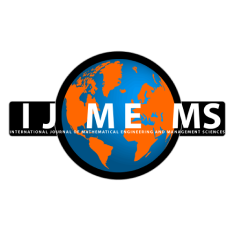Sukhmani Sidhu
Department of Statistics, Panjab University, Chandigarh, 160014, India.
Kanchan Jain
Department of Statistics, Panjab University, Chandigarh, 160014, India.
Suresh K. Sharma
Department of Statistics, Panjab University, Chandigarh, 160014, India.
DOI https://dx.doi.org/10.33889/IJMEMS.2019.4.1-019
Abstract
In the analysis of clustered survival data, shared frailty models are often used when observations in the same group share common unknown risk factors or frailty. There is dependence in the event times belonging to the same group, while event times from different groups are conditionally independent given their covariates. In such models, the known effect on survival time is described using the baseline distribution and regression coefficients while the unknown effect is described through a frailty distribution. In this paper, the Gompertz, log-logistic, and generalized exponential distributions are studied as baseline distributions, under a shared frailty effect described by the generalized gamma distribution. Their hazard functions have been compared and their applicability under different settings and performance with generalized gamma frailty has been explored. These models are fitted to three real life datasets using Bayesian estimation methods and compared using the Bayesian Information Criteria (AIC, BIC, and DIC) and the Bayes Factor.
Keywords- Gompertz hazard, Log-logistic hazard, Generalized exponential hazard, Bayesian information criteria, Bayes factor.
Citation
Sidhu, S., Jain, K., & Sharma, S. K. (2019). The Generalized Gamma Shared Frailty Model under Different Baseline Distributions. International Journal of Mathematical, Engineering and Management Sciences, 4(1), 219-231. https://dx.doi.org/10.33889/IJMEMS.2019.4.1-019.



